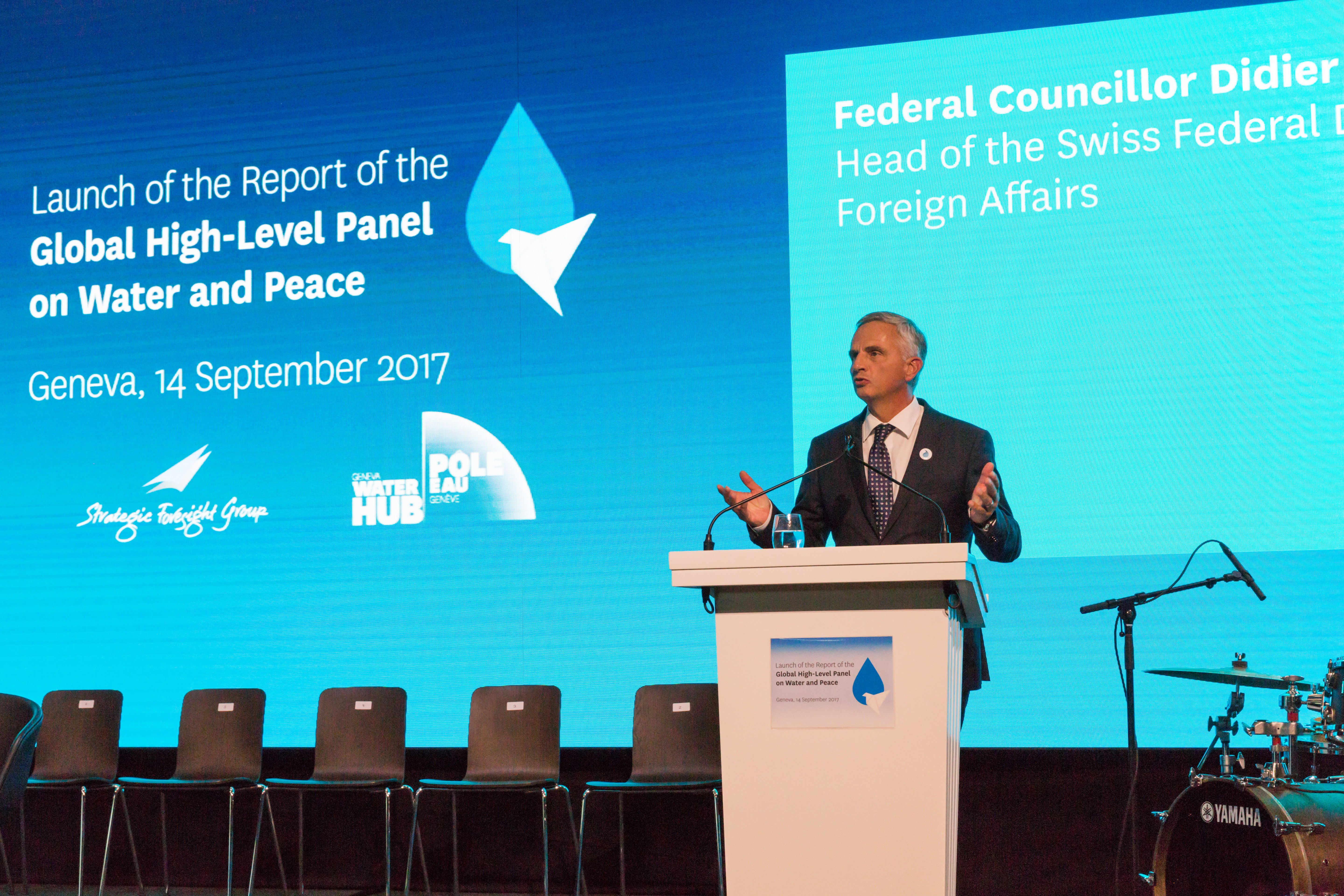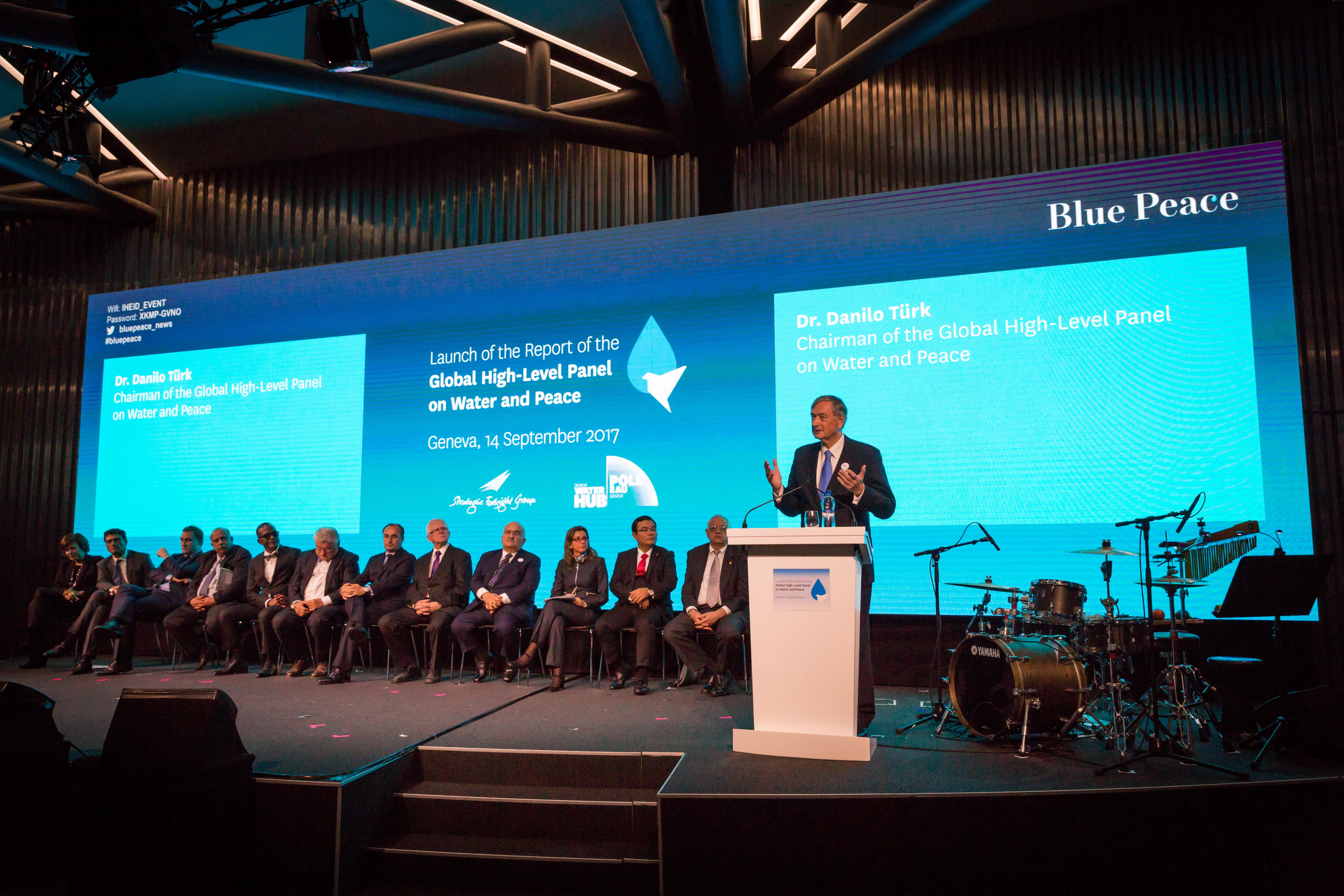Global Panel on Water and Peace publishes recommendations in Geneva
"Since water supply is likely to become a major source of tension in the coming years, there is huge potential today to make water a key medium for cooperation and a driver of peace," the head of the Federal Department of Foreign Affairs, Federal Councillor Didier Burkhalter, told the members of the Global Panel on Water and Peace. The panel chaired by former Slovenian President Danilo Türk was launched in November 2015. In Geneva on Thursday, its 15 member states presented the results of their work in the form of a set of recommendations to prevent and resolve water-related conflicts.

Because it has been observed that countries which jointly manage their shared water resources do not go to war with each other, Switzerland is very active in what it calls 'blue diplomacy'. This kind of diplomacy encourages discussions between the countries which make up the Nile Basin, and between countries in Central Asia and the Middle East. Syria and Yemen are two countries where water scarcity has exacerbated conflicts. Furthermore, according to a study published by the International Institute for Democracy and Electoral Assistance, by 2050 more than half of the world's population (52%) will be living in regions where water is extremely scarce.
Why #watermatters according to @_DaniloTurk, Chairman of the Global High-Level Panel on #Water and #Peace. ? #BluePeace pic.twitter.com/BQYzrtr6W6
— Blue Peace News ? (@BluePeace_News) September 14, 2017
Supported by the Geneva Water Hub, the Global Panel on Water and Peace has been working on the report for two years. Switzerland will focus its efforts on three of the seven recommendations published on Thursday in Geneva. First, expanding its water diplomacy efforts which facilitate dialogue and mediating between stakeholders to alleviate tensions linked to the management of water resources. To manage water resources well, we need to understand exactly what is at stake. Switzerland will therefore also support the exchange of water-related data and the development of standards to facilitate talks. Finally, Mr Burkhalter announced that Switzerland will work to secure funding for studies to promote transboundary water infrastructures that are both economically viable and environmentally friendly.

Switzerland is also committed to promoting the report and its recommendations. "We want to generate extensive international awareness of these realities and work towards a roadmap that will enable us to apply the reflections to date," concluded Mr Burkhalter. Next stop: Switzerland will present the recommendations at the UN General Assembly in New York next Monday.
Swiss Foreign Minister Didier #Burkhalter explains #Switzerland's vision regarding #Water and #Peace: https://t.co/Xo4N5TQPbf ? #BluePeace pic.twitter.com/8NBphZowRA
— Blue Peace News ? (@BluePeace_News) September 14, 2017

